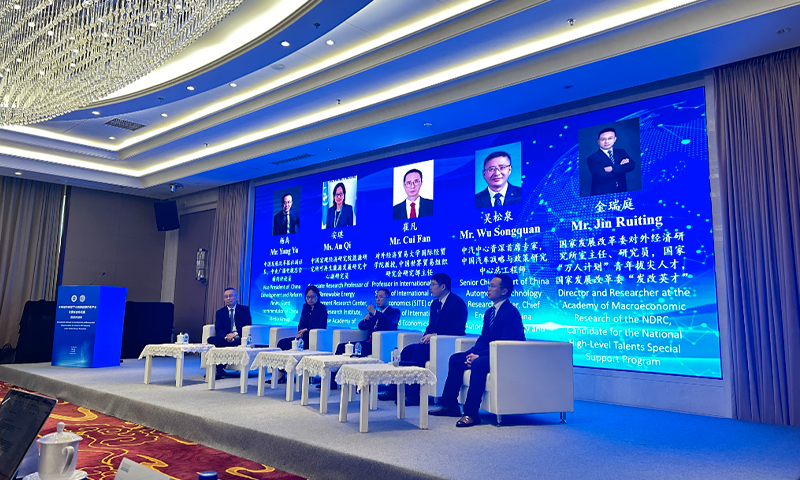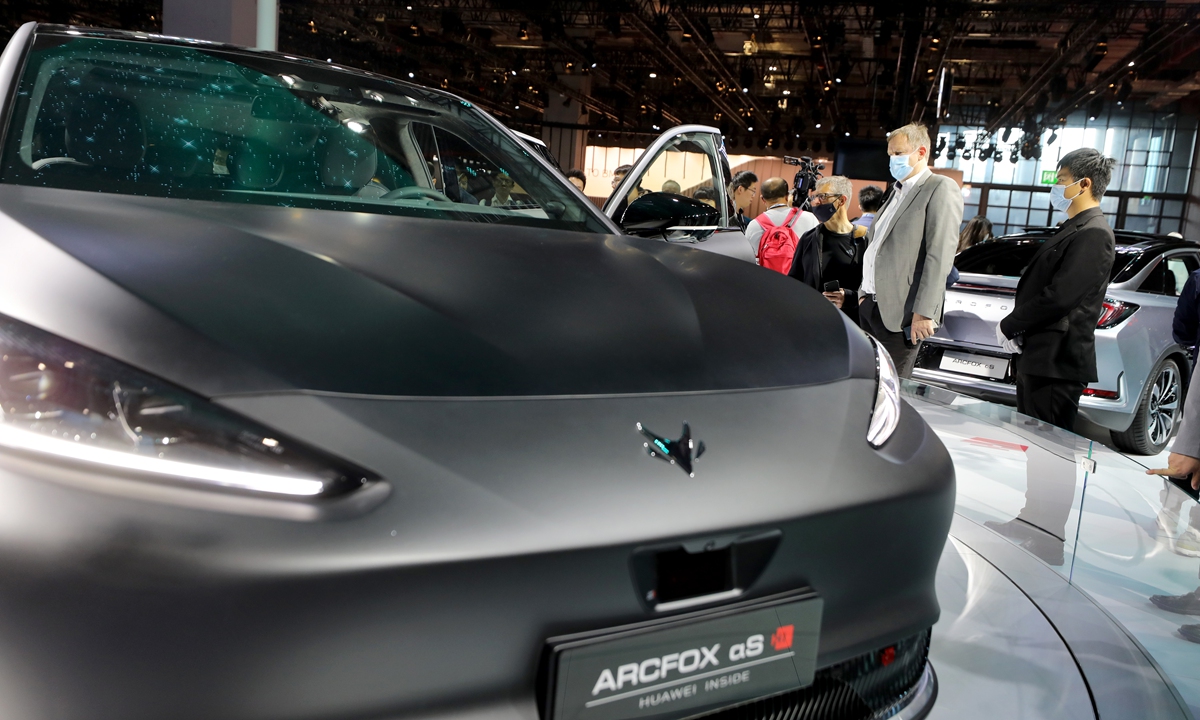
Photo: Zhang Weilan/GT
Chinese trade experts and industry insiders on Thursday expressed severe concerns about the negative impact of the EU's looming tariffs on Chinese electric vehicles, saying the move will disrupt the upgrade of the EV sector while slow down global green transition.
Chinese Commerce Ministry said on Thursday that the working teams of the two sides have maintained close communication and are accelerating talks, as the two sides agreed to launch consultations on EU's anti-subsidy investigation into Chinese EVs.
"The EU's decision to impose extra tariffs on Chinese EVs is not conducive to upgrading of the EV sector and advancing a global green transition, but it may spark an 'internal conflict' among EU members," Cui Fan, a professor of University of International Business and Economics, said at a seminar held in Beijing on Thursday.
Cui said the additional tariffs could greatly reduce profits of Chinese automotive companies and the joint ventures (JV) established between Chinese and European companies. JVs like those between Volkswagen and SAIC Motor may face a dilemma in transitioning away from traditional fossil-fuel vehicles to EVs because of the high tariffs, he said.
Currently, China is the most important production base for the German auto industry, Cui said, noting that German car manufacturers produced significantly more cars in China than in their domestic factories since 2019.
The remarks came after the European Commission (EC), the EU's executive arm, announced it will impose additional duties of up to 38.1 percent on imported Chinese electric cars from July 4.
The EU's move to increase tariffs on Chinese EVs to protect its domestic automotive industry is trade protectionism which is detrimental to both sides and may even harm others with no tangible benefit to the bloc, experts said at the seminar.
While the EU moves to set trade barriers for Chinese companies, Chinese automakers could still expand international market for greater growth, Wu Songquan, an expert from China automotive technology research center, said on Thursday. In fact, China's EV exports have met the market demand of various countries, promoting energy conservation and addressing climate change, he said.
"Chin's new energy development injects green confidence into the world's sustainable future, so it's imperative to break all trade barriers for green products," An Qi, an associate researcher at Energy Research Institute of the Chinese Academy of Macroeconomic Research, said.
While some countries insisted on hyping the "overcapacity" narrative, data has shown global demand for new-energy vehicles remains robust. Global EV demand is projected to reach 17 million units in 2024.
Despite external pressure, China's EV industry has shown resilience amid the country's continuous pursuit of low-carbon development. The China Association of Automobile Manufacturers reported that from January to May, auto sales in the world's largest auto market rose by 8.3 percent year-on-year to reach nearly 11.5 million units. In May alone, auto sales increased by 1.5 percent year-on-year to 2.42 million units. Of them, 39.5 percent were EVs, according to Xinhua News Agency.
An open market and full-fledged competition are two secrets of China's EV success, Jin Ruiting, a researcher at Foreign Research Institute of the Chinese Academy of Macroeconomic Research, said at the seminar.
Market liberalization is an important driving force behind the rapid development of EVs in China. Citing low import tariffs, favorable investment policy and complete industry and supply chains as examples, Jin said China's EV market is open, transparent and inclusive.

